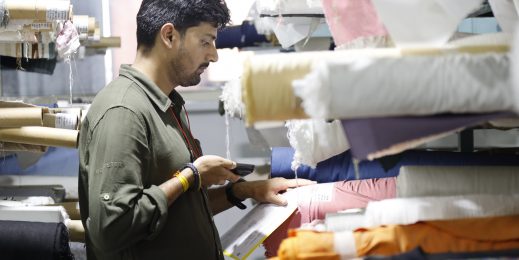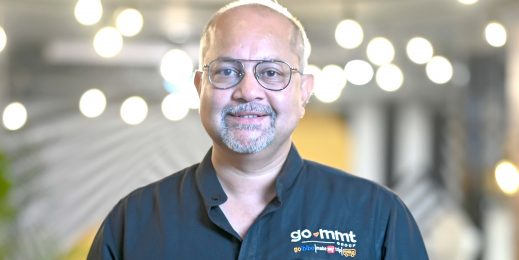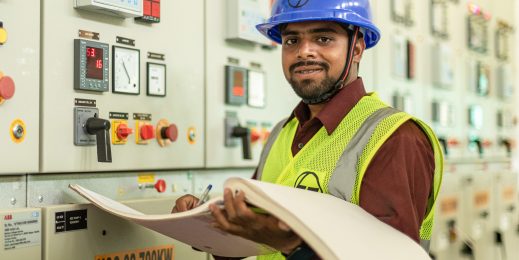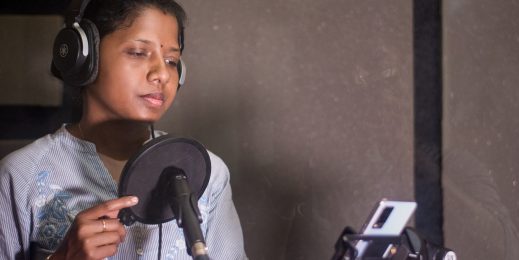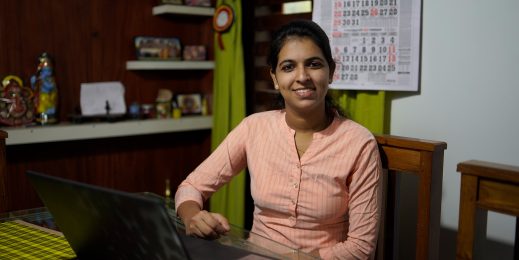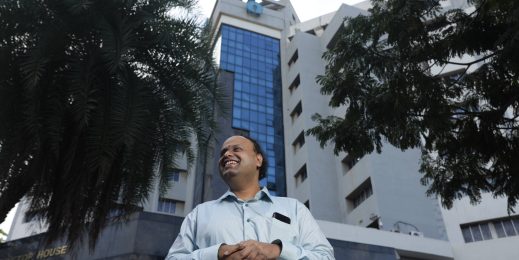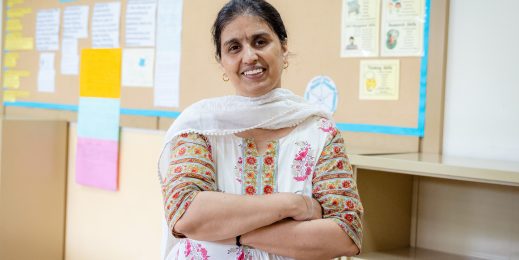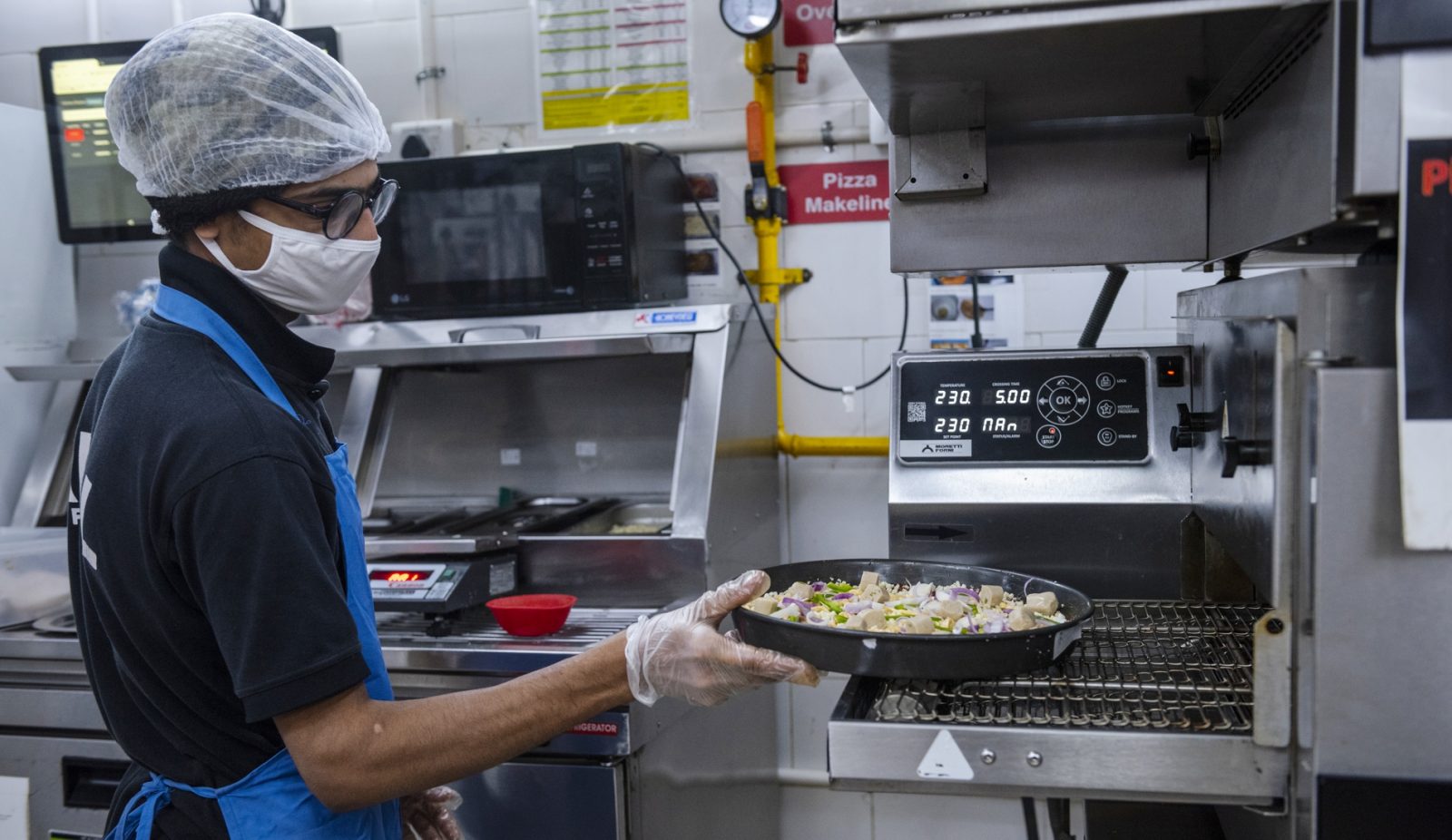
Kitchens in the cloud: AI is restoring consumer trust in the food delivery business
Many Indians are worried about unsafe food, so one company plans to show them how their meals are made.
Before COVID-19 struck India, Rajesh Agrawal and his wife, Meenakshi, would often get food from restaurants delivered to their home. A weekly treat of chicken tikka masala or lamb biryani would be a break from the vegetarian dishes they cook at home. But not anymore.
It’s been nearly a year since the Agrawals stopped ordering in food from their favorite restaurants.
“There’s no way to tell how clean and hygienic the restaurant kitchens are really,” Mr. Agrawal says. “Sure, the government has released processes for restaurants during the pandemic. But we can’t be certain that they’re following those, can we?”
In most restaurants–dine-in or takeaway–kitchens remain out of sight and out of bounds for customers. Short of walking into one, there’s no definitive way to ascertain if a kitchen is following hygiene protocols.
The Agrawals are not alone in their caution. Many thousands of restaurants around the country forced to closed for much of last year during a series of lockdowns are now opened for business. Yet many people are staying away rather than take the risk of eating out or ordering in.
The result has been devasting for India’s USD 50 billion dining industry. It has lost an estimated USD 9 billion over the past year with restaurant footfalls dropping to zero for most of 2020.
Soumyadeep Barman, an innovator in the food delivery business, says the food experience is broken and needs to restore customer trust. He has come up with a technology-driven plan that is based on high standards and transparency.
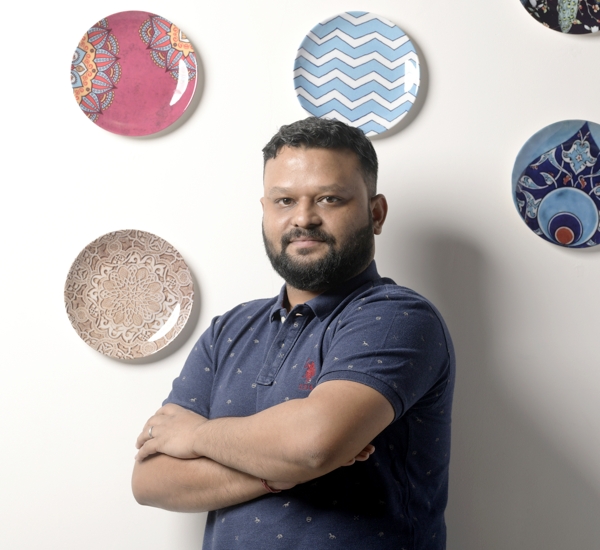
First of all, he has adopted an artificial intelligence (AI) video analysis solution by a Microsoft partner that constantly monitors kitchens for health and safety violations. And soon he hopes customers will be able to see for themselves how their meals are being prepared.
“We want to give control back to the customer,” he says. “The idea is to stream all of this to the customer. If you’re not confident about a kitchen you cannot stream it.”
Barman is the co-founder and chief product officer of Rebel Foods, a company that pioneered the concept of cloud kitchens in India way back in 2014. Cloud kitchens are, in essence, commercial scale kitchens that only cater to food delivery and don’t have any option for dine-in or even take-out.
According to RedSeer Management Consulting, the delivery-only restaurant sector is projected to grow five times by 2024 to become a USD 2 billion industry in India, up from USD 400 million in 2019.
Rebel Foods runs 350 kitchens across 35 cities in India. It has under its umbrella a dozen food and beverage brands serving customers everything from pizzas to wraps to food bowls and even artisanal coffee. Customers can order food via Rebel Foods’ own EatSure app as well as third-party food delivery apps. The company has also ventured beyond India with its cloud kitchens in Indonesia, Dubai, Singapore, Malaysia, Bangladesh and the U.K.
Every kitchen operated by Rebel Foods undergoes constant checks to ensure certain quality parameters are met. These include checking whether the staff members are wearing caps, gloves, and face masks, and whether the floor is clean and, of course, if food is being cooked properly.
“All our kitchens are HACCP certified, which requires us to follow stringent quality standards in our kitchens,” Barman says. HACCP (or Hazard Analysis Critical Control Point) is a globally recognized technique for preventing food contamination along the supply chain. “If you order from any of our restaurants, you can be assured it has come from the safest kitchen in town.”
Typically, video feeds from security cameras inside the kitchens are audited by a team of about two dozen auditors, who can identify outlier kitchens with higher prevalence of lapses.
But with health concerns heightened by the pandemic, Rebel Foods wanted a system that could flag lapses in real-time enabling kitchen managers to act immediately and not retrospectively.
“We’ve always been tech-savvy and tried to solve customer problems with technology. The idea is to first identify the problem and then build technology to solve it and not the other way around. To achieve that we needed Microsoft’s help,” says Barman.
Enter Staqu, an AI startup and Microsoft partner headquartered in Gurgaon in northern India that has developed a customizable video analysis software solution called Jarvis.
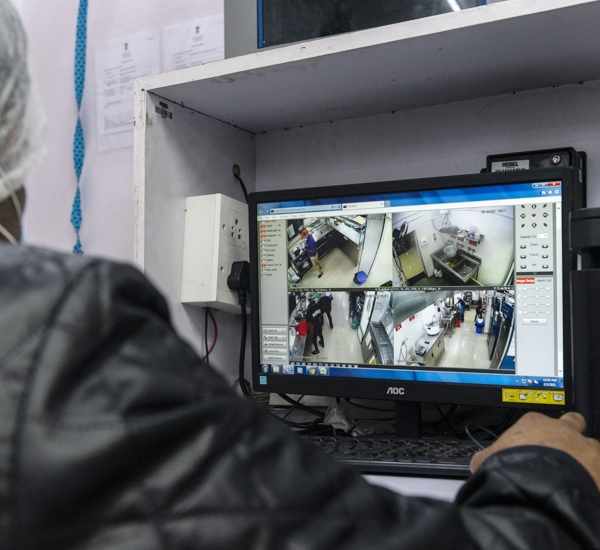
Jarvis can analyze video in real-time and identify and monitor pre-set objects and activities, among other things.
For Rebel Foods, Jarvis currently monitors four activities in each kitchen. These range from whether staff members are wearing mandatory aprons, headgear, and face masks, to whether they are washing their hands at set intervals.
To ensure hygiene is maintained in the kitchen, Jarvis also monitors whether floors are mopped at predetermined intervals and that cooking utensils are rinsed, washed, and sanitized in three separate sinks.
When it finds a discrepancy, Jarvis sends an alert to kitchen supervisors and auditors, who can take immediate action.
Staqu’s value proposition is that it doesn’t require its clients to replace their old cameras as their app, which runs on Microsoft Azure, can connect to existing cameras. This process is made seamless because Staqu uses Azure Kubernetes Services, which enables them to scale their product by adding new AI models and features remotely.
“Earlier a lot of the AI work had to be done offline. Clients would have to own servers in data centers on which we would then deploy our software,” explains Atul Rai, co-founder and CEO of Staqu.
“Azure has made it incrementally easier for us to scale faster and more easily. Today, if a client wants to add 500 more AI-powered cameras, we can do it easily because we don’t need to add new hardware, we just use the cloud.”
It also enables Staqu to deploy its software remotely, without ever having to visit a client’s location. That’s how Staqu has deployed Jarvis in 50 of Rebel Foods’ kitchens during the pandemic with another 300 kitchens slated for installation soon.
Because Staqu uses Azure, it is bound by Microsoft’s Responsible AI policies. The policies rest on the principles of fairness, reliability and safety, inclusiveness, privacy and security, accountability, and transparency.
“We’re aware that we need to be responsible. In this case, Jarvis is programmed to identify activities and not people. It wouldn’t identify who’s in the kitchen but rather what they are doing: if they’re wearing a mask, headgear, and apron, or if they’re following the three-sink cleaning process,” Rai says.
“Additionally, Jarvis is deployed on Rebel Foods’ cloud subscription and our technology resides on their cloud. They own the data.”
The initial deployment has been so successful that Barman and his team are already conceptualizing nearly two dozen additional use cases with teams from Staqu and Microsoft.
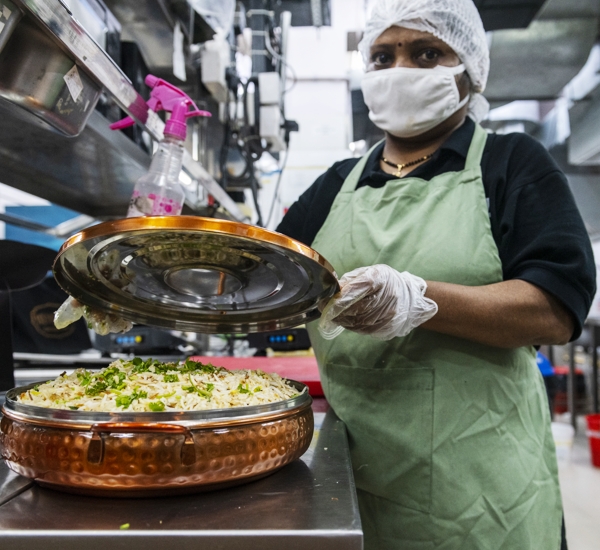
Some of these include detecting whether waste bins are overflowing or making sure that the final product has been placed properly a brown paper bag with relevant accompaniments and if the delivery bag has been sanitized.
At the heart of Rebel Foods’ endeavor to rebuild trust is a quality control station called SWAT that checks the size, weight, appearance, and temperature of each dish to ensure it meets the promised parameters.
As part of an upcoming update on its EatSure app, you will be able to watch a livestream of your order being made by a person who’s wearing a mask, a cap, and an apron, and in a kitchen that is clean and hygienic. Once your order is made, you will receive a photograph of the various items you’ve ordered from the SWAT station.
Barman reiterates that the easiest way to build trust is by showing the customer what’s going on in the kitchen. “Along with the picture, we’ll also tell them who has prepared it, how much it weighs, what’s its size, how it looks and ask them if they’re satisfied. If not, then we’ll remake the order.”
So, the next time Mr. Agrawal wants to order a chicken tikka masala, he needn’t wonder if the restaurant’s kitchen is hygienic or if the staff is following protocol.
Top image: Rebel Foods’ kitchens follow strict hygiene protocols and there are constant checks to ensure pre-determined quality parameters are met. (Photo: Amit Verma for Microsoft)
Abhishek Mande Bhot is an independent writer and editor covering news, lifestyle, and luxury for publications in India and the US.







